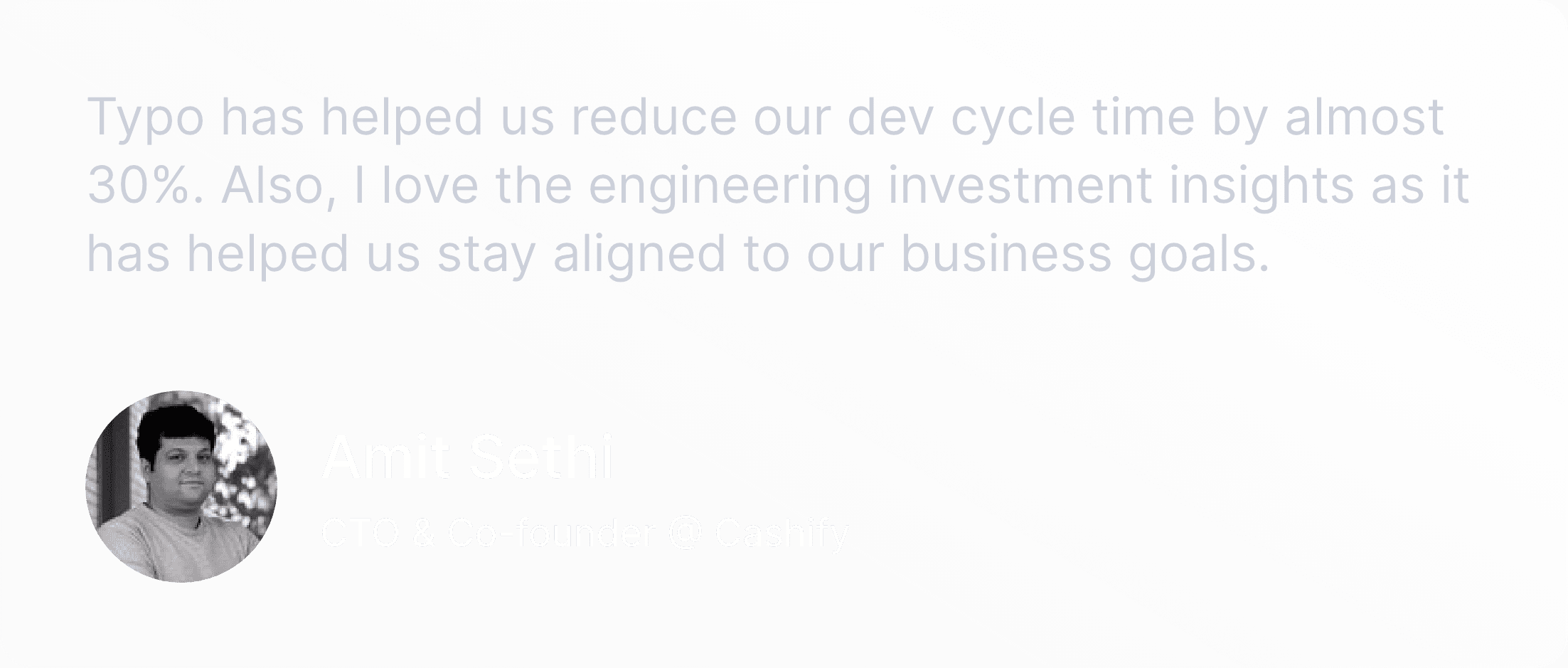This is a successfull message
This is an Alert Message
This is an Error Message
With a massive growth in the engineering team size, Cashify’s Chief Technology Officer Amit Sethi realised that it’s hard to get visibility on the team’s performance and understand the bottlenecks in the delivery process.
Cashify’s team had been growing, so Amit had to restructure the team to create a better process flow. At the same time, the team went hybrid and Amit wanted to know the impact of these changes on the developer’s performance & support.

Using metrics derived from the DORA, Typo demonstrated that the team had consistently maintained a good pace during this period with high deployment frequency. However, the team was observed to be taking a lot of time in merging PRs - reflected in their high Merge time.
The analysis of Review depth highlighted a 20% decline in the feedback received by senior developers compared to their junior and intermediate counterparts. Furthermore, when feedback was provided to seniors, 75% of it originated from individuals less experienced than them. This aspect reduced the likelihood of the feedback being beneficial for the seniors' personal growth.
Amit acknowledges the importance of senior developers dedicating time to mentoring other team members. However, he's also committed to ensuring that these senior members have chances to advance in their individual professional journeys.
Amit opted to conduct an experiment: He made a decision to move a senior developer from the regular workflow into a "senior float" role. This new role involved the developer "floating" between teams, offering feedback and engaging in pair programming as the situation demanded.
His intention behind this move was to assess whether this change could enhance the support received by senior developers, potentially leading to increased efficiency. When individuals are unable to access the necessary guidance in a timely manner, it can give rise to issues with the workflow. This situation prompts individuals to commence new tasks while awaiting input, resulting in work being spread across multiple unresolved matters. Handling numerous issues and repositories necessitates frequent shifts in focus, consequently impeding the overall pace of work.
Within just a month of implementing the change, the proportion of review depth directed towards senior developers doubled - confirming the positive impact of the "senior float" role. Typo's ability to directly measure behaviours enables swift assessment of the effectiveness of actions taken by team leads. In this instance, Amit observed an increase in peer feedback for senior developers, nurturing their professional growth and self-assurance.
Furthermore, this behavioural shift catalysed alterations in team performance: The Time to Merge, decreased by 60% in 4 weeks. This indicates accelerated task completion not only among senior developers but across the entire engineering department.
Next, their interest lies in delving further into specific insight, like examining the Work Distribution among senior members. This entails understanding the allocation of time seniors dedicate to mentoring their peers versus accomplishing their own tasks. Striking the ideal equilibrium between providing support and advancing personal tasks can be challenging for any team.
 Cashify
CashifyIncrease in the review depth and collaboration on PR
Decrease in the overall cycle time within 4 weeks
Increase in merge frequency